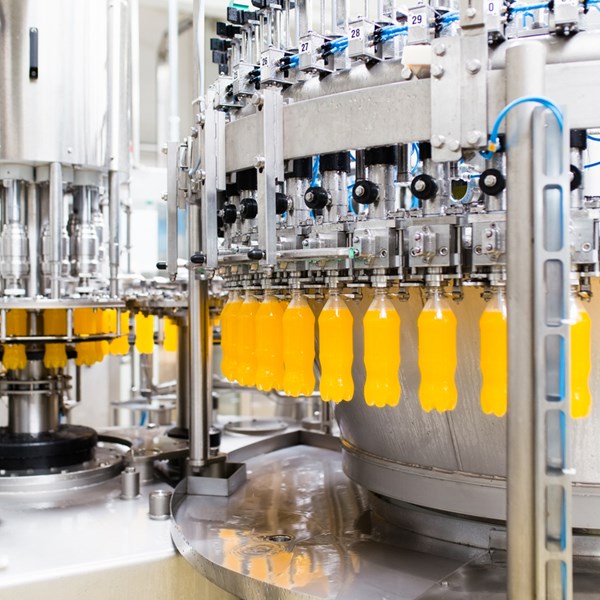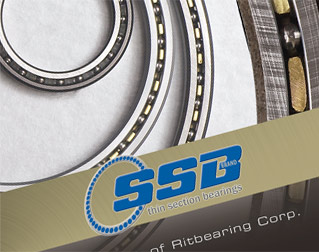Every industry is different, which means that one bearing product may be better for one market than another. When it comes to the food and beverage industry, there are several issues that can impact the success of your bearings, including:
- Extreme temperatures (both high and low)
- Excessive moisture and chemicals due to continuous cleaning
- Adherence to strict hygiene standards and regulations
- The potential of product getting in your parts
Many or all these factors can come into play depending on your application. As a result, it’s crucial to find a food-grade bearing solution that caters to your exact needs. Here are some ways your bearings can address certain issues in the food and beverage industry.
Prepare for Extreme Temperatures
It’s not uncommon for food and beverage applications to encounter both high and low temperatures depending on the nature of the product being made. Each temperature range can cause issues if you use bearing products not designed for hot or cold environments.
High temperatures can cause a couple of bearing issues, starting with lubrication problems. Excessive heat can cause grease to purge its oil, which lessens that lubricant effectiveness and potentially even make the bearing seize up over time. High temperatures can also reduce the hardness of bearing metals if the right material isn’t used, which can lead to early failure.
Like heat, colder temperatures can also impact bearing lubricants. Low ambient temperatures affect lubricant viscosity for both oils and grease and can restrict the flow of lubrication to the bearings. As a result, colder environments can cause excessive friction and damage to the bearing without the proper parts.
To address temperature issues, it’s important to invest in parts designed for your specific environment. Special high- or low-temperature lubricants will resist the affects of temperature change better than standard solutions, while temperature-graded materials will better retain their hardness over time.
Deal with Excess Water and Wash Down Chemicals
Water and cleaning chemicals are no strangers for food-grade bearings. Regular required wash downs present quite a few problems for bearings not designed to encounter frequent contact with moisture or strong cleaning solutions.
One major issue with water and chemicals is that they can cause bearings to corrode over time. Not only does corrosion impact the lifespan of your parts, it can also cause corroded particles to come in contact with your products and contaminate them. Those are both massive issues that can be solved by investing in materials that are resistant to corrosion, like stainless steel.
Another problem with wash downs is that the process can blow the lubricants used in your bearings straight out of the parts themselves. With no lubrication, bearings will not be able to perform the way you had planned and will require you to replace those parts much sooner than you intended. Solid lubricants are like a sponge that releases oil while running and sucks it back up when stopped. This option helps you protect the lubrication while the bearing is not in use.
Embrace Strict Hygiene Standards
In addition to preventing corrosion, bearings must meet food safety concerns in other ways. Over time, there is a chance that a bearing’s lubrication may leak out of the part. While this isn’t an issue in some industries, it’s a major problem when something made for human consumption is involved.
To address this issue, it’s important to use food-grade bearing lubrication that will be fine if it happens to come in contact with food or beverage products. The USDA has set grades for these lubricants depending on where your bearings are used:
- H1 – Designed for food processing environments with some possibility of incidental food contact
- H2 – Designed for equipment and machine parts in where there’s no chance that lubricants or lubricated surfaces will contact food
- H3 – Designed to clean and prevent rust on equipment like hooks or trolleys
Prevent Food from Getting in Your Bearings
Not only is it important to keep the contents of your bearings from getting into your products, it’s also good to keep your product from getting into your bearings. Depending on your applications, there is a chance that dough, meat, or any other substance may become lodged inside of your bearings. As you may expect, bearings aren’t going to work very well when jammed up with food.
Fortunately, a good seal can help you shield your bearings from intrusive food or beverage products. An option like a Buna seal can help you keep foreign debris like food and other contaminants out of your bearings while aiding in keeping lubricants in your parts.
Find the Right Food-Grade Bearings with Slim Section Bearings
Even if you know what challenges you face, it’s not always easy to find the right bearing solutions for food and beverage applications. At Slim Section Bearings, we can help you identify which thin section bearings are best for your situation, whether that involves a standard part or custom food grade bearings. Contact us today to talk to our experts about your bearings needs today.







